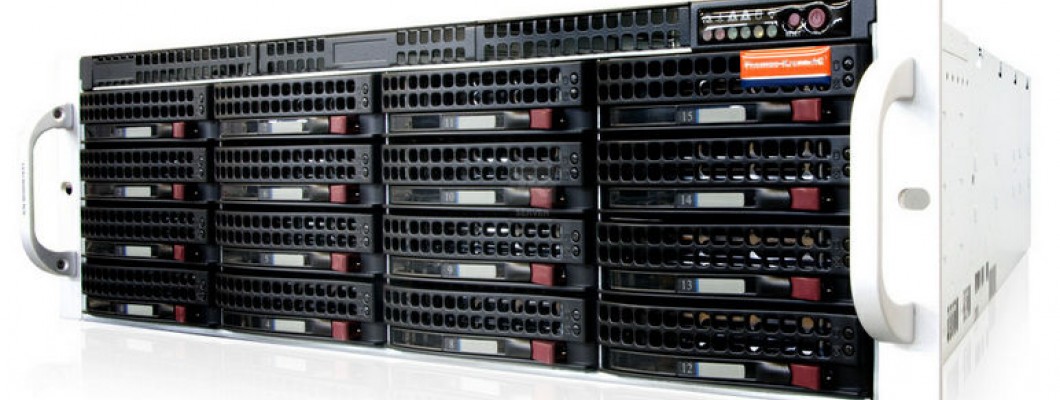
Network-Attached Storage (NAS) is a storage device connected to a local area network or the Internet. It is designed to both keep data securely and allow it to be shared among multiple devices within a network and can be used in both home and business settings. A NAS typically comes with one or more hard drives that offer both significant storage capacity and redundancy against potential failures, and can be configured to provide advanced features such as backup management, remote access, and file sharing .
In the business context, cyber security has become a top priority. Companies must protect their sensitive data, comply with privacy regulations and ensure information integrity. In this context, a modern Network Attached Storage (NAS) server, in addition to fulfilling all the roles just mentioned, provides an essential contribution in data protection within a corporate local area network (LAN). In this article we will explain the importance of a modern NAS server in the field of information security starting from its primary function, i.e. the protection of corporate data.
Data backup and recovery: All modern NAS servers provide built-in advanced data backup and recovery capabilities. You can create automatic schedules to regularly back up or snapshot shared folders or entire devices, thus ensuring that important business information is always protected. Thanks to the hardware redundancy of the data available thanks to an ever greater number of hard disks present in the NAS server, in the event of loss or corruption, it will always be possible to restore data quickly, eliminating or minimizing downtime and potential damage. Furthermore, all the backup, snapshot and data synchronization functions allow multiversioning capable of restoring a given state of any file, as it was at a given moment in time. These features are the basis of protection and prevention from fearsome ramsonware attacks of any type and generation.
Data centralization and control: A modern NAS server allows you to centralize and effectively manage corporate data. Data can be stored on a single secure server, making it easier to control access and authorizations. This allows you to avoid the uncontrolled dissemination of sensitive data on individual devices and to establish access policies based on well-defined and robust corporate policies.
Control of access and authorizations: the latest generation NAS allow you to precisely manage access and authorizations to users within the corporate LAN network. Specific roles and privileges can be defined to ensure that only authorized people can access sensitive data. This helps prevent unauthorized access and mitigate the risk of data theft or breach.
Data Encryption: NAS often offer advanced data encryption capabilities. Encryption of data in transit and at rest ensures that sensitive information is protected from unauthorized access. If your NAS device is stolen or physically accessed, your data remains inaccessible without the correct decryption key.
Protection from external threats: A quality modern NAS server offers tools to protect the corporate LAN network from external threats. Built-in firewall capabilities coupled with typically redundant network connectivity enable intrusion detection and help protect and prevent attacks from the Internet. Additionally, advanced NAS solutions often integrate antivirus and anti-malware to detect and neutralize potential threats.
Activity monitoring and logging: Modern NAS servers offer activity monitoring and logging tools to track data access and operations. This allows you to identify any suspicious activity or anomalies, allowing you to intervene promptly to prevent possible violations or cyber attacks.
Regular Firmware Updates: A crucial aspect of cyber security is keeping the firmware of the NAS server constantly up-to-date. Manufacturers regularly release security patches to fix known vulnerabilities and improve security. Keeping the firmware updated ensures that your NAS server is protected from the latest cyber threats.
In addition to these features, NAS also offer other advantages compared to classic server-based solutions:
- NAS scalability or the ability to expand the storage volume by simply adding more hard drives or replacing the pre-existing ones with new higher capacity drives, the system will take care of adapting the storage by requiring only a few simple steps from the administrator.
- Continuity of service: as previously mentioned, the hard disks present in a NAS are almost always contemplated with a view to secure data conservation, this means that in the event of a disk failure, it will be replaceable even without having to switch off the device ( If foreseen HotSwap) in fact the data will continue to be always available even in the phases of reconstruction of the damaged volume.
- Performance: Adopting multiple hard drives for data storage in a single data volume increases its performance. This means that access to a volume will always be fast even in cases where they are requested by multiple users simultaneously.
- Virtualization: if present, the virtualization service integrated into a NAS will allow access to one or more complete systems based on Windows or Linux with all the advantages of security and multiversioning provided by the support NAS server.
- Video surveillance: all the distinctive characteristics of the NAS described up to now make the NAS the solution par excellence also to satisfy any need in the Video surveillance field. This aspect is so evident to the point that in fact today we can find the management service dedicated to video surveillance in almost all NAS from the smallest to the top of the range produced by the main brands on the market.
In conclusion, thanks to the ever more performing hardware in every area, we can deduce that the NAS today no longer only covers the role of secure data storage, but has turned into something similar to a BlackBox that plays a vital role in data protection within a LAN regardless of whether it is home, business or any institution. Its ability to centralize and manage data, provide encryption, data backup and recovery, protect against external threats, control access and permissions, monitor activities and ensure regular firmware updates ensure a corporate IT security policy across the board. avant-garde. Investing in a quality NAS server is a strategic choice to protect data integrity and maintain customer and stakeholder trust.
DEV74 provides world-class NAS solutions for any computing environment, providing Synology HP ASUS QNAP NAS solutions with ongoing technical support and assistance.

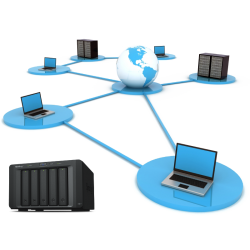
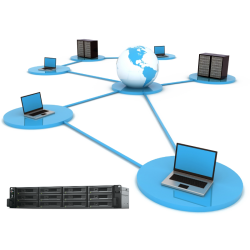
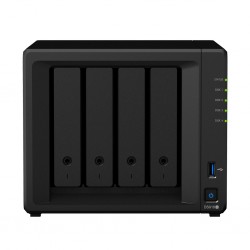
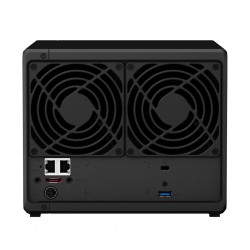
Leave a Comment